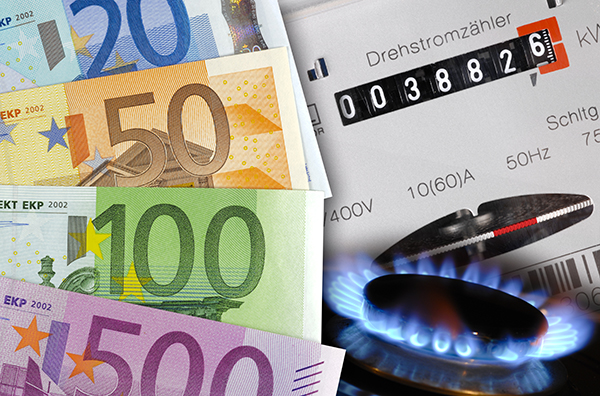In the autumn of 2021, energy prices in the Netherlands reached a historically high level. As Statistics Netherlands (CBS) estimated, based on the energy prices in January 2022, this year a household with average energy consumption will pay €2800 for energy bills. Compared to the previous year, this means that the energy price will increase by 86%, since in 2021 the bill for electricity and gas in an average household was around €1321. This drastic change follows the sharp increase of the purchase price of gas and electricity, which energy suppliers pass on to consumers.
The price of energy rose mainly due to the higher variable supply rates that consumers pay per cubic meter of gas or kilowatt hour of electricity. These rates rose by almost 350 percent in a year, states CBS
Energy prices differ greatly per household and housing type; in old buildings they tend to be higher. According to CBS, the least affected will be small apartments in new buildings with one resident, although their energy costs will still increase by 70%. The most affected will be households with two or more residents in old, freestanding houses: their energy bill will be almost double compared to last year.
Energy tax lowered
Those who have a fixed contract for energy costs will not yet notice the extreme increase. As CBS states, households that had a contract with a multi-year fixed supply price in January 2021 will not be affected by rising energy costs, but will benefit from lower taxes.
To compensate at least partly for the high supply tariffs, and ensure that electricity remains affordable for everyone, the government decided to lower the energy tax. As CBS calculated, a household with an average annual consumption will pay €417 less in tax in 2022 than a year earlier. In 2022, that allowance will increase by €265 due to the higher energy prices. The total amount of the energy tax allowance is therefore €824.77, according to Wijzer in Geldzaken, an informative website initiated by the Dutch Ministry of Finance. The energy tax on electricity will decrease by 6.9 eurocents per kWh, which – with an average consumption of 2,384 kWh per year – results in €160 less to pay.
As opposed to the decreasing tax on electricity, the energy tax on gas will increase in the coming years. In 2022 it will go up 2 eurocents per m3. With an average gas consumption of 1,170 m3 per year, the payment in tax for gas will thus be €23 higher. With this measure, the government wants to further reduce gas consumption in the Netherlands.
Corona hit first, now energy prices
Not only households are affected by the increasing energy prices. As a manager of an Italian restaurant close to Dam Square in Amsterdam said, a lot of places, including his restaurant, were closed in January this year due to the Covid measures. As they reopen again, those who don’t have a fixed energy price in their contract can expect higher bills.
Some businesses won’t be affected by the energy price increase yet, but already know that in a few months’ time they will be spending much more on gas and electricity. “We still have a contract with fixed prices until June, so we don’t notice any difference in the bills yet. However, we already got a price offer and from June the energy costs will triple,” says Rens Geisterfer, owner of Rene’s croissanterie at Damstraat.
Currently, Geisterfer pays approximately €2000 per month for energy; from June he will be paying €6000. He says that means he will lose a lot of profit, but he will not have to fire any of his employees. The problem is that his business, like many others, is already in a difficult position because of the lockdowns. About 70% of his clients are tourists, and because of the Covid measures, the bakery made only 10% of its usual profit in 2021.
Of course, with the current situation in Ukraine, it’s not certain that the price hike will be limited to the current figures – if the Netherlands will no longer receive gas from Russia, the situation may become much more serious.
Written by Zuzanna Kuffel
